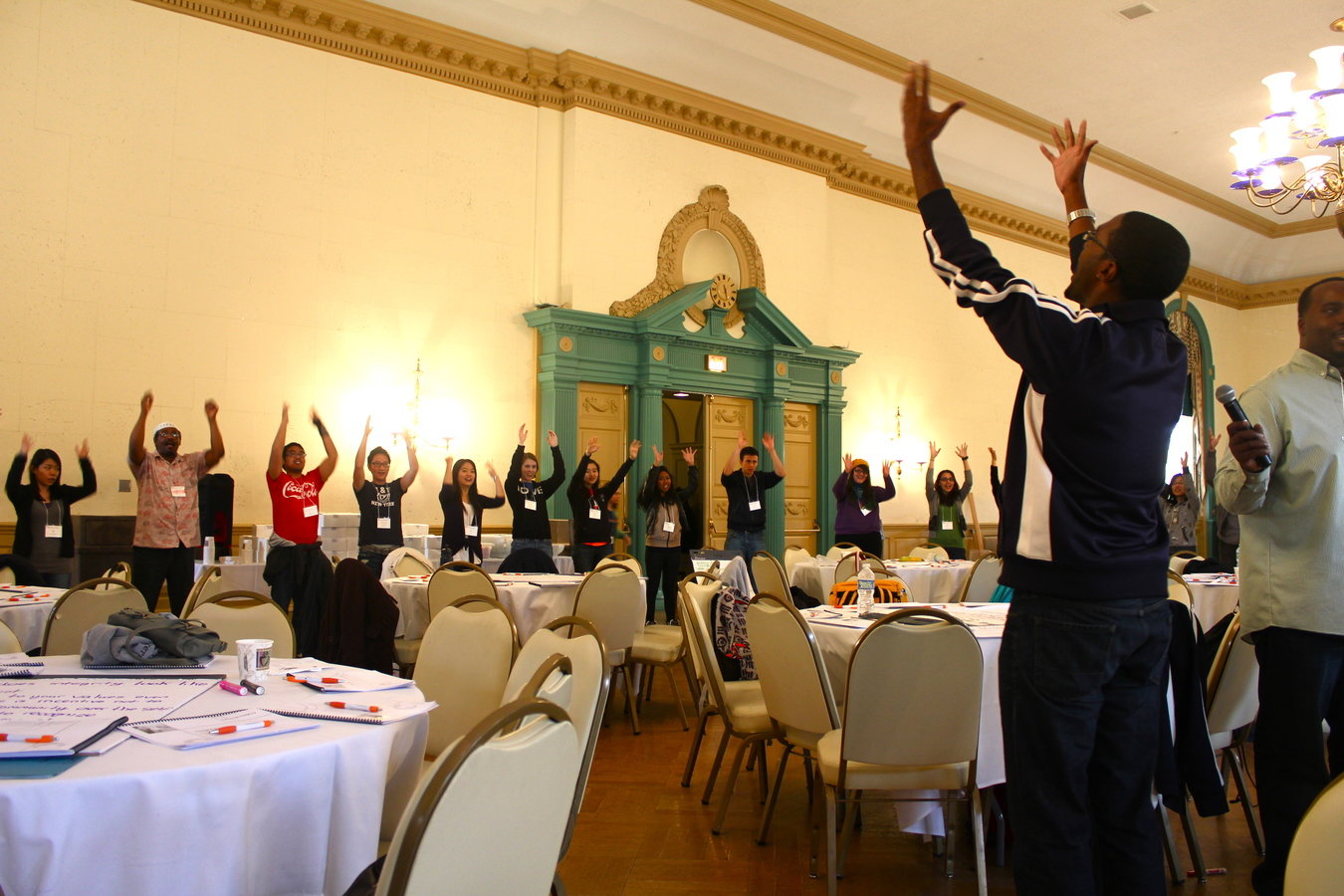

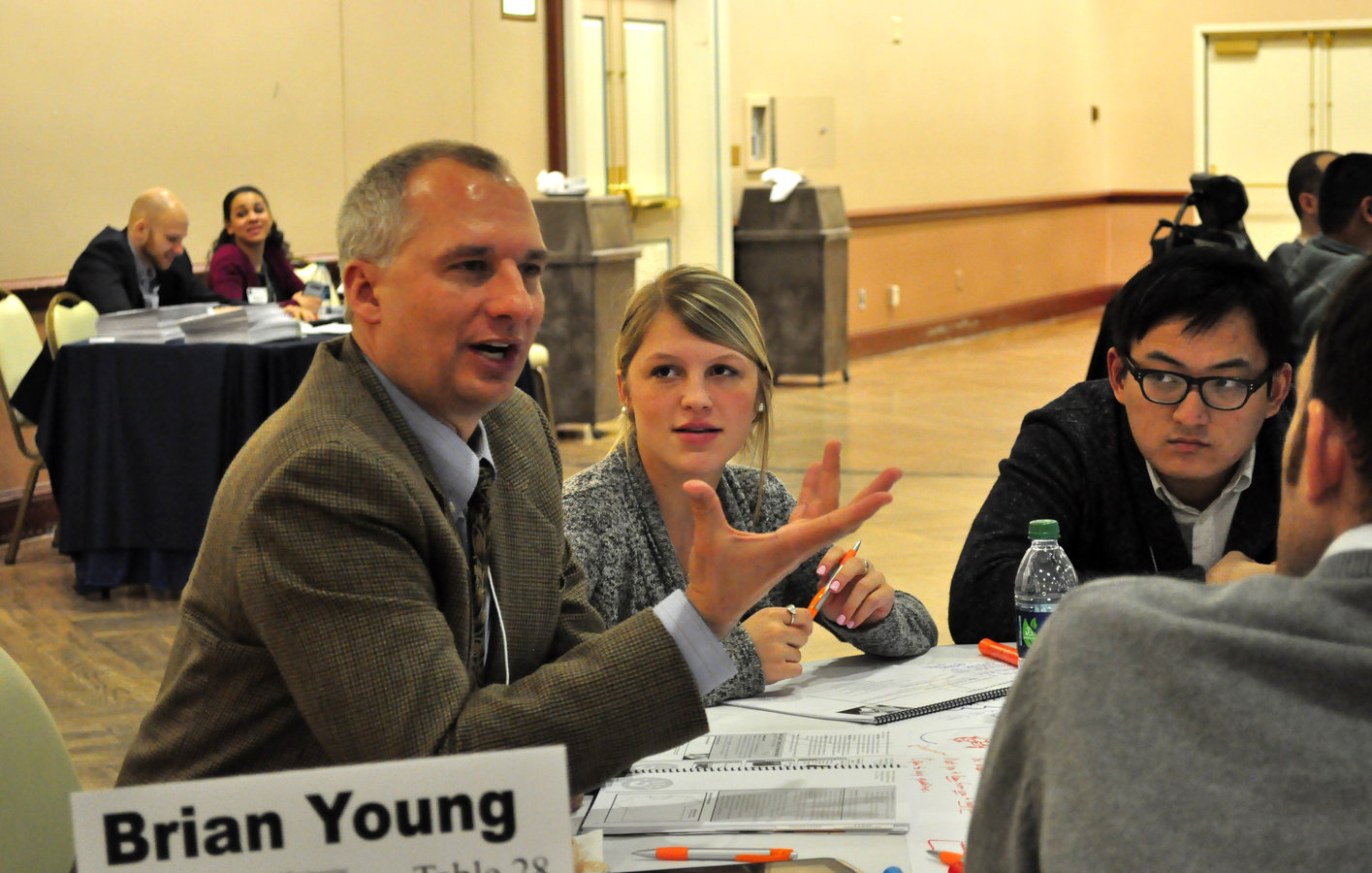

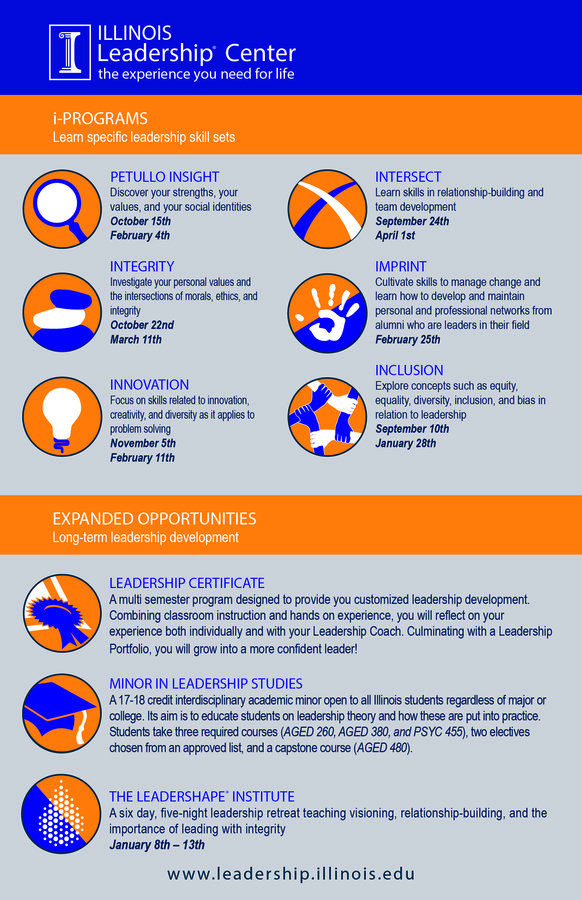
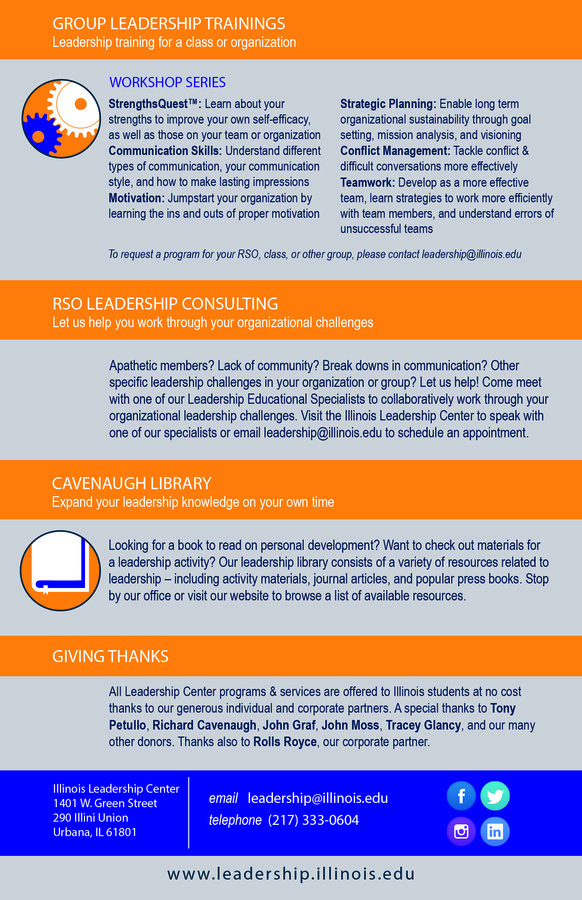
Understanding your Strengths For Success

www.leadership.illinois.edu

www.leadership.illinois.edu
How would you describe yourself?
Who do you want to become?
How will you get there?
What leads to your success?
What's next?


www.leadership.illinois.edu
Think back to a meaningful event in your life...

Your Best Self
What happened?
How did you respond?
What made your performance exceptional?

www.leadership.illinois.edu
Weakness Fixing...Wrong Assumptions
All behaviors can be learned
- If you try hard enough you can do it!
- If you can dream it, you can achieve it!
People seen as the best get there the same way
Weakness fixing leads to success

www.leadership.illinois.edu
Strengths Building...Right Assumptions
- Some behaviors can be learned. Some are nearly impossible to learn.
- The best in a role deliver the same outcomes but use different behaviors.
- Weakness fixing prevents failure. Strengths building leads to success.

www.leadership.illinois.edu
The Strengths Philosophy
- Spend most of their time working in areas of strengths
- Have learned to delegate or partner with someone to tackle areas of non-strength
- Use their strengths to overcome obstacles
- Invent new ways of capitalizing on their strengths
"One should waste as little effort as possible on improving areas of low competence. It takes far more energy to improve from incompetence to mediocrity than it takes to improve from first-rate performance to excellence"
Peter Drucker

www.leadership.illinois.edu
Individual Results & Reports
-
Check what's true
-
Cross out what you don't agree with
-
Underline what really resonates with you


www.leadership.illinois.edu
Going back to your best self...consider which of your talents made you successful and fulfilled

www.leadership.illinois.edu

www.leadership.illinois.edu
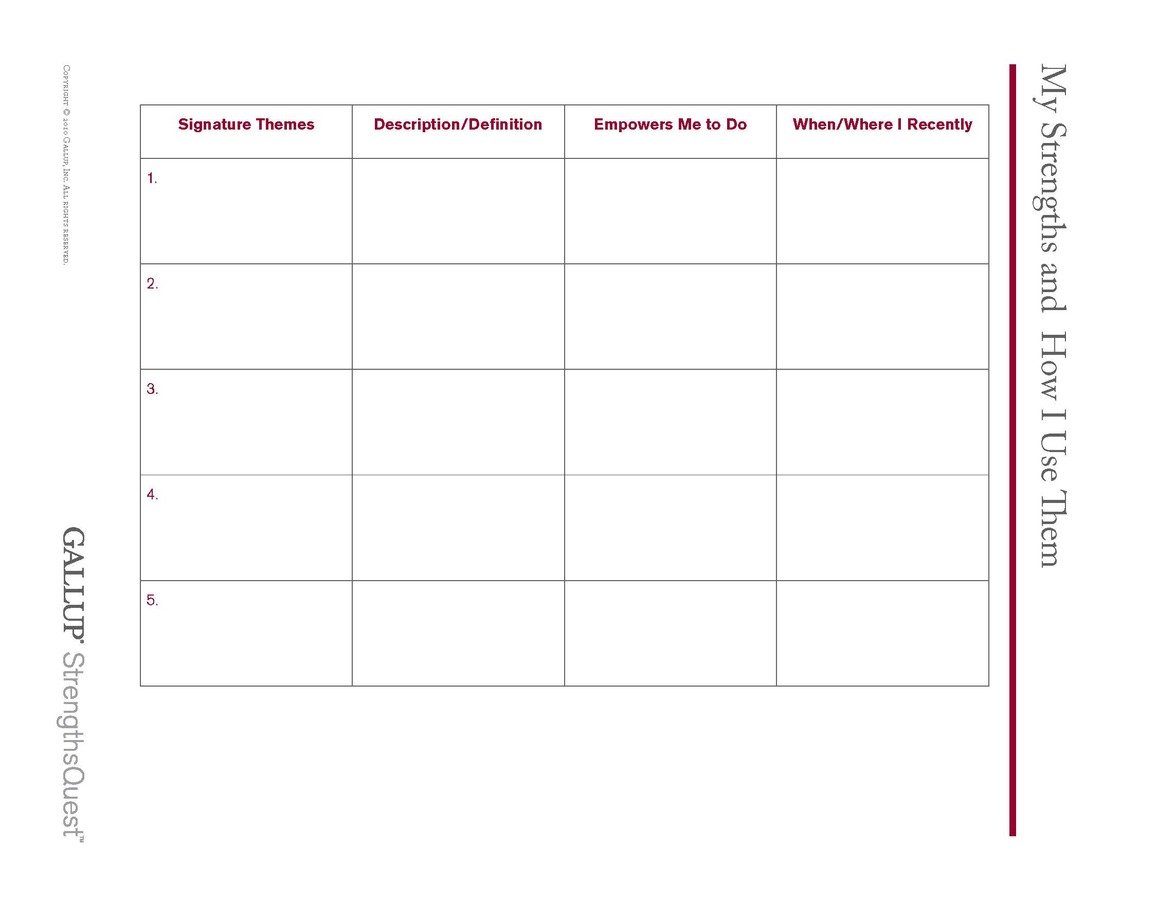
Input
Collecting Ideas
Pulling from unique sources
Research paper

www.leadership.illinois.edu
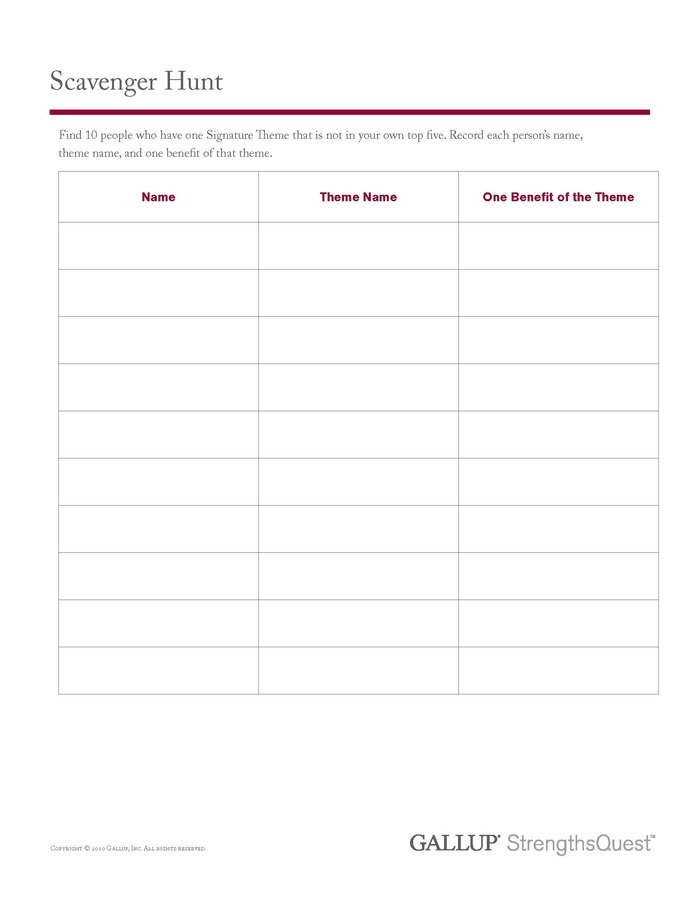

www.leadership.illinois.edu
Executing
Achiever
Arranger
Belief
Consistency
Deliberative
Discipline
Focus
Responsibility
Restorative
Influencing
Activator
Command
Communication
Competition
Maximizer
Self-Assurance
Significance
Woo
Relationship Building
Adaptability
Developer
Connectedness
Empathy
Harmony
Includer
Individualization
Positivity
Relator
Strategic Thinking
Analytical
Context
Futuristic
Ideation
Input
Intellection
Learner
Strategic

www.leadership.illinois.edu
290 Illini Union
leadership@illinois.edu
(217) 333-0604